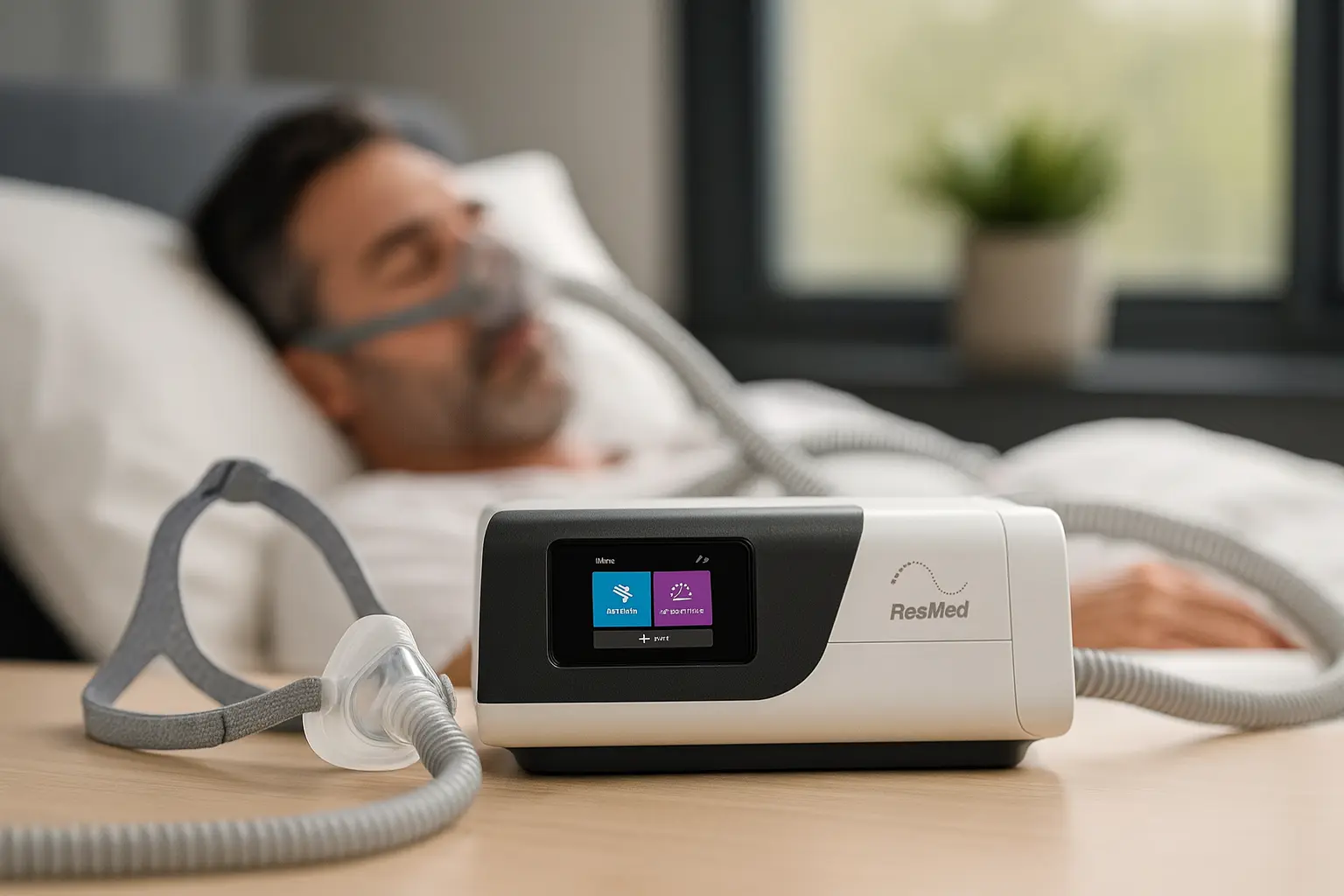

If you or your loved one snores loudly or often wakes up feeling tired, it might not just be poor sleep — it could be sleep apnea. This common yet often overlooked condition affects the way you breathe while sleeping, leading to repeated interruptions throughout the night.
Sleep apnea is a sleep disorder where breathing repeatedly stops and starts during sleep. These pauses can last for a few seconds to even a minute, reducing oxygen levels in the body and disturbing your rest cycle.
Main Types of Sleep Apnea:
Understanding what sleep apnea is and its types is the first step toward proper diagnosis and treatment.
Sleep apnea often goes unnoticed because symptoms appear during sleep. However, there are clear signs you can watch for:
If you notice these symptoms, it’s time to consult a doctor or sleep specialist.
Untreated sleep apnea can do much more than disturb your sleep — it can seriously affect your long-term health. Some of the key risks include:
Ignoring sleep apnea can be dangerous, but early diagnosis makes a big difference.
The good news — sleep apnea is completely treatable once diagnosed.
A sleep study (polysomnography) or a home sleep apnea test helps monitor your breathing, oxygen levels, and sleep patterns.
Getting diagnosed early ensures you receive the right therapy before complications develop.
💡 Healthy Jeena Sikho offers a home sleep study test for just ₹999, making it easier and more affordable to take the first step toward better sleep, better health, and a more energetic life.
Today, managing sleep apnea is easier and more comfortable than ever with home-based treatments.
Most effective options include:
Modern devices are compact, quiet, and user-friendly — helping you achieve deep, uninterrupted sleep right at home.
Sleep apnea might sound intimidating, but with early diagnosis and the right treatment, it can be completely managed.
Better sleep means better heart health, focus, and overall energy.
1. What causes sleep apnea?
Sleep apnea is usually caused by relaxation of throat muscles that block the airway during sleep. Other causes include obesity, enlarged tonsils, nasal blockage, or lifestyle habits like smoking and alcohol.
2. What are the warning signs of sleep apnea?
Loud snoring, pauses in breathing, daytime fatigue, and morning headaches are common signs. If these symptoms persist, a sleep study is recommended.
3. Can sleep apnea be treated at home?
Yes. With modern CPAP and BiPAP machines, sleep apnea can be treated effectively at home with regular monitoring.
4. Is sleep apnea dangerous if left untreated?
Yes. Untreated sleep apnea increases risks of heart disease, stroke, diabetes, and fatigue. Early treatment ensures long-term health and safety.
If you suspect you or your loved one might have sleep apnea, don’t ignore the signs.
Talk to a sleep expert today or explore Healthy Jeena Sikho’s range of CPAP and BiPAP machines for safe, effective home treatment.
👉 Learn more about sleep apnea treatment at home and available equipment solutions at healthyjeenasikho.com